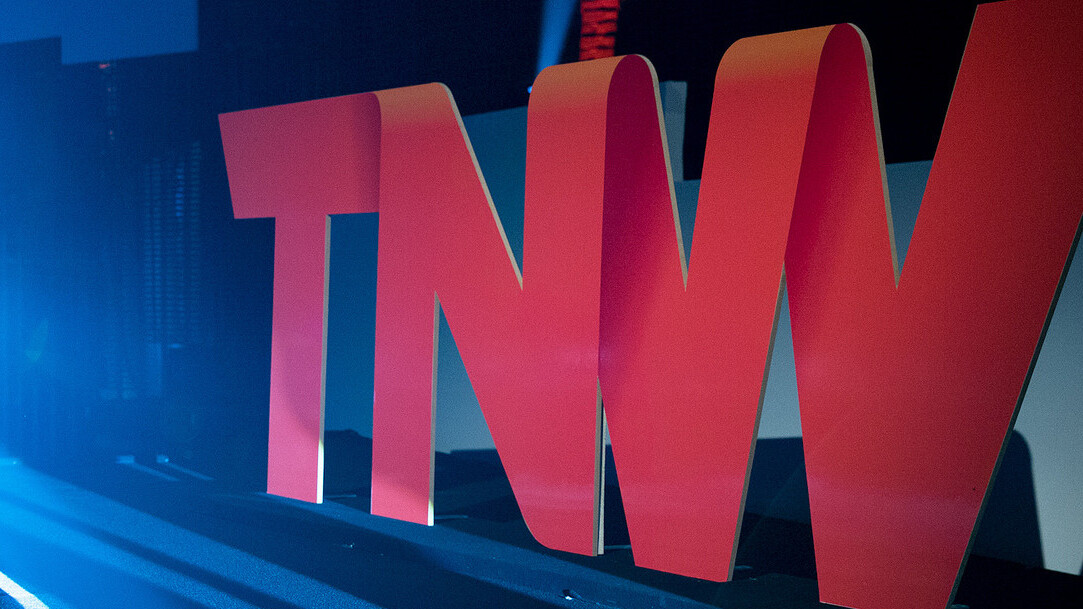
As we welcome another year in tech, with each one seeming to whizz past with ever-increasing speed, TNW challenged its co-founders and department heads to share what they learned in 2015, their hopes for the year to come and what resolutions they’ll be making, and sticking to, in 2016.
When I took over as Editor-in-Chief for this magnificent site late last year, the first thing I did – after whooping, hollering and congratulating myself with a lot of cheap Prosecco – was take a long hard look at how we and our competitors had changed over the years.
This blog was started as a way for our founders to talk about the conference that they had started in Amsterdam.

But it quickly became so much more than a blog about a conference. In 2008 the tech world was just coming to grips with a new operating system called Android, Apple’s App Store and GPS. What was about to happen next nobody really expected. Technology – and the reporting of it – exploded.
Out of that big bang came fragments that landed everywhere. From gadgets for your house, to gadgets in our pockets to gadgets that live in our garden, suddenly our lives became digital in ways we couldn’t possibly imagine before.
Sure, there had been stuff previously, but the pace of change stepped up a gear. As tech reporters, we had to adapt as well. So we started by changing our terrible logo.

Then we started reporting on things outside of laptops, smartphones and hardware. Which was super fun and we got to talk about subjects that we never thought would ever be considered tech – the Oxford English Dictionary, anyone?

However, the downside of this deluge is our tiny editorial team were drowning in a sea of stories that we all thought were worth reporting on but there was simply not enough hours in the day. Meanwhile our competitors were throwing money, time and resources into growing their teams as fast as possible. Which is great, it proved that we were in the right place at the right time.
Plus, we love a bit of healthy competition here at The Next Web. It pushes us to work smarter with the resources we have. But with all that growth and all that money comes expectations. Namely, when is editorial going to start delivering results on the cash investors piled in?
Creating compelling editorial products is an expensive business. The newspaper industry has known this for years. The Times of London has been run at a loss for decades, as has the Guardian. Why? Because creating a quality product that people know and love takes time. It also involves making a lot of bad decisions before finding that delicate balance of editorial independence and having a roster of advertisers who help and support the publication’s vision.
Tech reporting is no different. I would love it if money wasn’t an issue and I could hire another 10 reporters all over the world and give them free reign to create incredible stories that readers couldn’t find anywhere else. But the reality is I can’t. We have bills to pay and we want to be around for a good while longer yet.
It was a very sad day when GigaOm was shut down last year. The respected tech blog couldn’t pay its creditors and a site that pulled in six million people a month was no more. Just like that.
Just walked out of Gigaom for the last time. Thank you everyone. I will miss you all for rest of my life! http://t.co/IBOhRuZ4DZ
— Om Malik (@om) March 10, 2015
Media is now big business. Vice Media and Buzzfeed are two content companies that the tech industry has thrown more than $500 million at over the last few years. As such, the stakes are higher than ever before. With all that money comes pressure to deliver ever greater traffic numbers and engagement figures to investors thirsty for results.
Over the past 12 months I have watched tech sites that I love buckle under that pressure. Sites that have spent years crafting impeccable brands that did tech reporting in their own unique ways suddenly became lifestyle sites where all content and all audiences are welcome.
This is not a criticism. I get it, they’ve got bills to pay, investors to satisfy and there are traffic targets to reach. Reporters cost money and the most tangible way of measuring that cost is with clicks.
I’d be lying if I hadn’t thought in my darker moments about taking The Next Web in the same direction. But as much as I’d like to expand my roster of great writers and preside over a site that does 50 million hits a month, I know that by being Editor-in-Chief of this great brand I have a responsibility to preserve what I think this company stands for.
We are a technology company that talks about technology. That’s it. Whether it be on the thenextweb.com, on social media or at our many brilliant conferences and hackathons. This is what we are, and this is what we will stay.
Technology and the reporting of is in a constant state of flux. We all have opinions of what counts as technology reporting and what doesn’t. On my first day on the job I wrote a piece exploring this idea.
Technology – and reporting on it – has become so vast there is no real way of describing what it is or how we go about covering it. It’s not just hardware, software, launches, talks, startups, entrepreneurial insights and life hacks. It’s everything. It’s what it means to be a person today. And we’re going to try and reflect that.
Because of that there will be stories you’ll see on The Next Web that will make you question, “is this tech?” I’ll admit, we’re still trying to work out where tech stops and the rest of the world begins.
But despite these blurred lines, my New Year’s Resolution for 2016 is a promise that as long as I’m in charge, this site will remain a place for the world to talk about technology and nothing more.
This is a #TNWLife article, a look into life and work at The Next Web.
Get the TNW newsletter
Get the most important tech news in your inbox each week.




